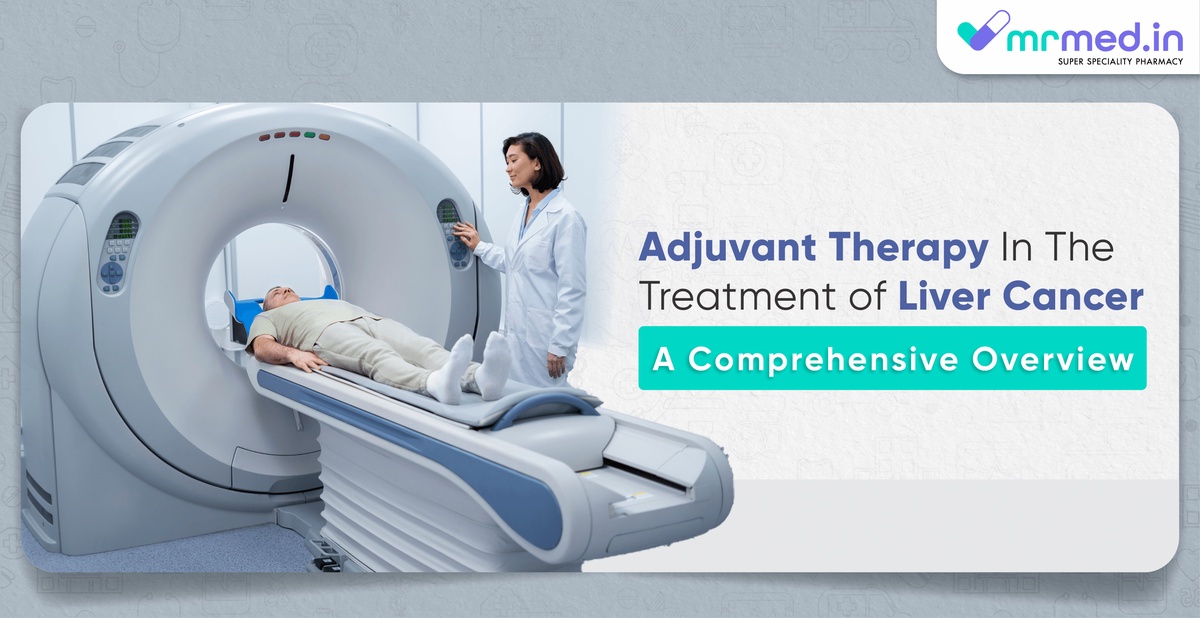In the field of oncology, hepatocellular carcinoma, sometimes referred to as liver cancer or HCC, is a formidable adversary. Effective therapy is challenging since it is typically discovered at an advanced stage. Although liver transplantation and surgical resection remain the best therapies for early-stage liver cancer, adjuvant medications have become crucial tools for boosting survival rates, managing symptoms, and enhancing patients' overall quality of life. The numerous adjuvant therapy choices for the treatment of liver cancer will be looked at in this article. We will also go into great length on liver cancer's warning signs, symptoms, and causes in order to provide you a complete understanding of this ailment.
Symptoms, Risk Factors, and Causes of Liver Cancer
It is crucial to comprehend the fundamentals of liver cancer before talking about adjuvant therapy. A number of variables can damage the liver, a crucial organ in charge of absorbing nutrients and removing toxins, which can result in the development of cancer.
Symptoms:
- Jaundice (yellowing of the skin and eyes)
- Abdominal pain and discomfort
- Unexplained weight loss
- Fatigue and weakness
- Loss of appetite
- Swelling in the abdomen
- Nausea and vomiting
- Enlarged liver or spleen
Risk Factors:
- Chronic Hepatitis Infection: Liver cancer risk is markedly increased by persistent hepatitis B or C infections.
- Cirrhosis: Viral hepatitis, fatty liver disease, and long-term alcohol misuse can all increase the risk of cirrhosis and other liver damage.
- Family History: An individual's vulnerability may be increased if there is a history of liver cancer in the family.
- Toxin exposure: Certain industrial chemicals and aflatoxins, which are present in tainted food, may be to blame.
- Heavy Alcohol Use: Heavy alcohol use has been associated with liver cancer.
- Obesity: Conditions including non-alcoholic fatty liver disease (NAFLD) and obesity itself may be risk factors.
- Diabetes: Those who have the disease are more vulnerable.
Causes:
The unchecked proliferation of liver cells is the main contributor to liver cancer. Cirrhosis, a chronic liver inflammation and scarring condition, frequently occurs before cancer. These inflammatory states have the potential to result in cancer-promoting genetic alterations.
Adjuvant Therapy in Liver Cancer
Treatments referred to as adjuvant therapy are those given after the primary therapy, which in the case of early-stage liver cancer is often surgery or liver transplantation. Adjuvant treatment aims to eradicate any cancer cells that may still be present, lower the chance of cancer recurrence, and improve overall survival. Some crucial elements of adjuvant treatment for liver cancer include the following:
- Thymosin Alpha 1 (Tα1): Thymosin Alpha 1 is an immunomodulatory peptide that has demonstrated potential as an adjuvant therapy for the treatment of liver cancer. It functions by boosting the body's immunological response, which makes cancer cells easier to target and eradicate. T1 may have a direct antitumor impact and, according to research, can enhance the response to other treatments like chemotherapy. Clinical trials are still being conducted to ascertain its most effective use and management of liver cancer.
- Chemotherapy: Adjuvant chemotherapy entails the use of medications to eradicate any cancer cells that may still exist following surgery. Patients with advanced liver cancer or those who are at high risk of recurrence are frequently advised to have it. Drugs like sorafenib and lenvatinib, which have been authorised for the treatment of advanced liver cancer, could also be useful as adjuvant therapy.
- Targeted treatments: Targeted treatments concentrate on certain chemicals or pathways that contribute to the spread of cancer. Targeted medications like sorafenib and regorafenib are two examples that have shown effectiveness in treating advanced liver cancer and are being researched as possible adjuvant therapies.
- Radiotherapy: After surgery, adjuvant radiation may occasionally be employed to target any cancer cells still present in the liver. The likelihood of a local recurrence can be decreased with this targeted radiation therapy.
- Immunotherapy: Immunotherapies, including immune checkpoint inhibitors, represent a potential treatment option for liver cancer. Current research examines their potential as adjuvant medicines to strengthen the immune system's capacity to fight cancer, even though they are more frequently used in advanced instances.
- Transarterial Chemoembolization (TACE) is a locoregional treatment that combines chemotherapy and embolisation (blood vessel obstruction). After surgery or previous therapies, it is occasionally used as adjuvant therapy to target any remaining tumour tissue in the liver.
Conclusion
With a high death rate and a propensity for late-stage diagnosis, liver cancer is a dangerous condition. By focusing on leftover cancer cells, lowering the chance of recurrence, and boosting overall survival, adjuvant treatment is essential for improving patient outcomes. New therapies appear to be effective in improving the body's immunological response against liver cancer, raising hopes for better results. For early identification and intervention, it is crucial to understand the signs, danger signs, and causes of liver cancer. There are many reasons to be positive about the future of liver cancer treatment as long as research into adjuvant medicines is conducted.


No comments yet